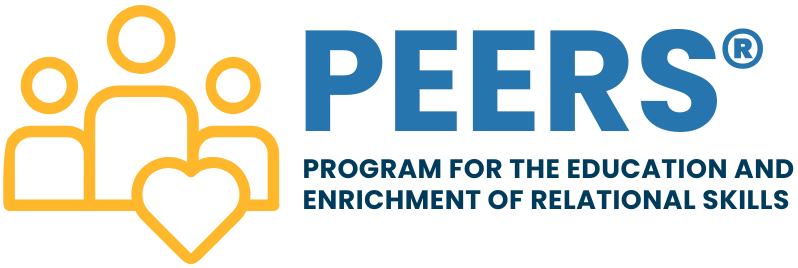The Power of Peer Groups, Backed by Proven Research
The PEERS® curriculum is the world’s most researched social-skills framework — and its success lies in the power of learning with peers.
Research shows that people develop social confidence fastest when they can practice, role-play, and receive feedback in real time with others who share their goals.
Over 20 years and 50+ peer-reviewed studies confirm that the PEERS® model improves friendship quality, communication, and self-confidence for teens and adults worldwide.




